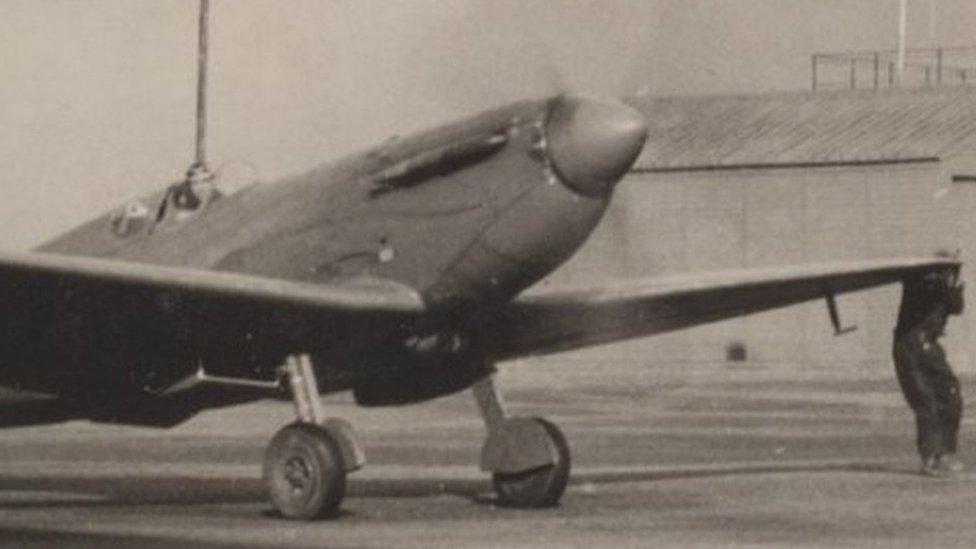Replica Spitfire unveiled at former WW2 airfield
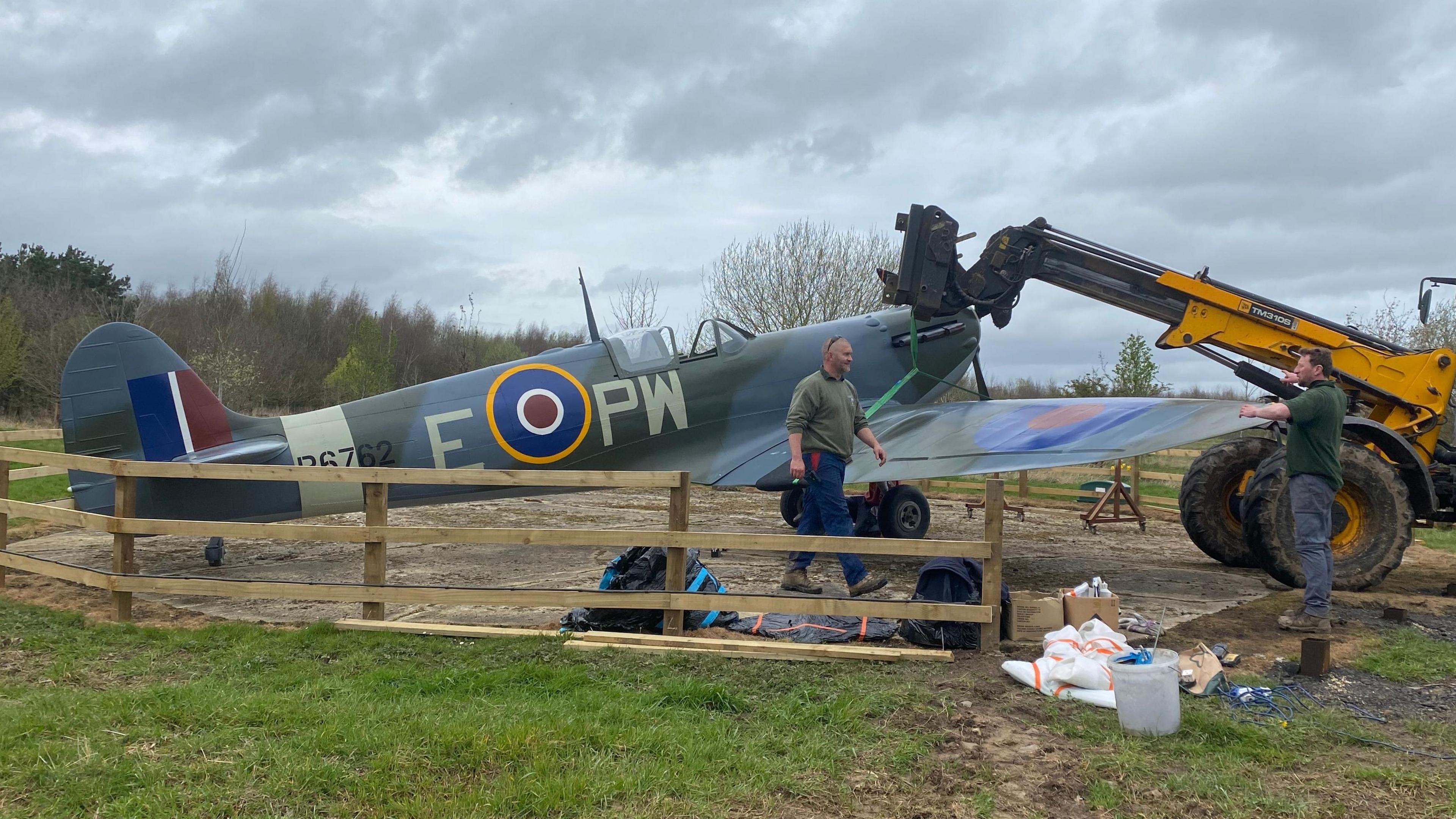
The replica Spitfire, which was built in Cornwall, has been installed in the exact spot where a Spitfire would have been 80 years ago
- Published
A replica Spitfire has been displayed at a former World War Two airfield in Northumberland.
It has been placed at what was once RAF Eshott, near Felton, where pilots were trained between 1942 and 1944.
The aircraft was unveiled as part of a ceremony held to mark the 80th anniversary of a mid-air collision, which claimed the lives of two pilots.
The site of the crash was discovered by Chris Davies who said it must have been "terrifying" for young men to fly in "these big powerful machines".
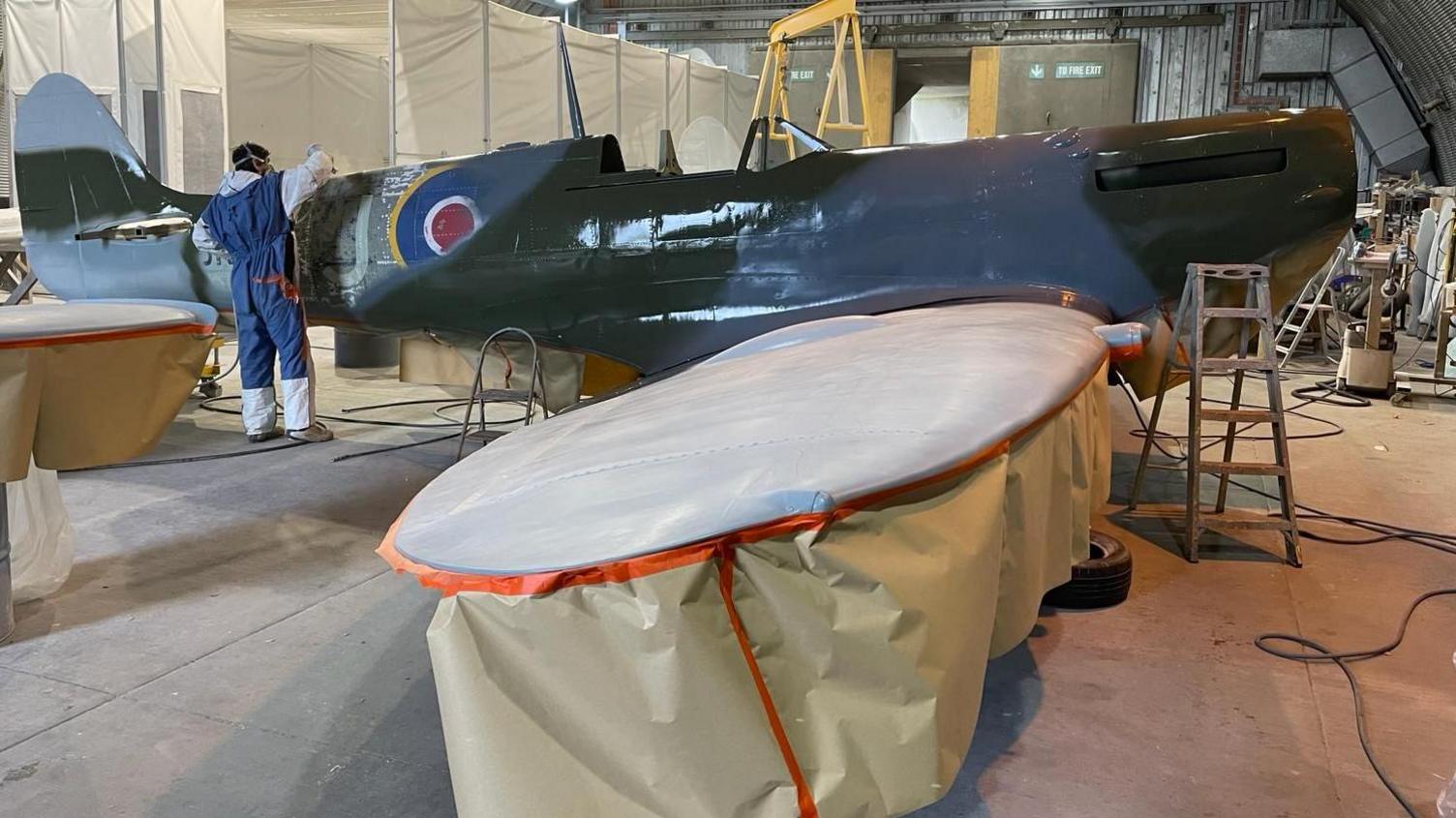
The replica was transported to Northumberland in sections
A Spitfire, flown by Norwegian pilot Sgt Kai Arthur Knagenhjelm, collided with a US Thunderbolt piloted by 1st Lt Anthony Serapiglia on 12 April 1944.
The site is now part of Northumberland Woodland Burials and Crematorium, run by Laura and Scott Clarehugh.
“We’re incredibly proud of our Northumbrian heritage and we felt it was really important to honour the memory of those who served here," Mr Clarehugh explained.
The replica was placed on one of the concrete tie downs, where planes were anchored to the ground.
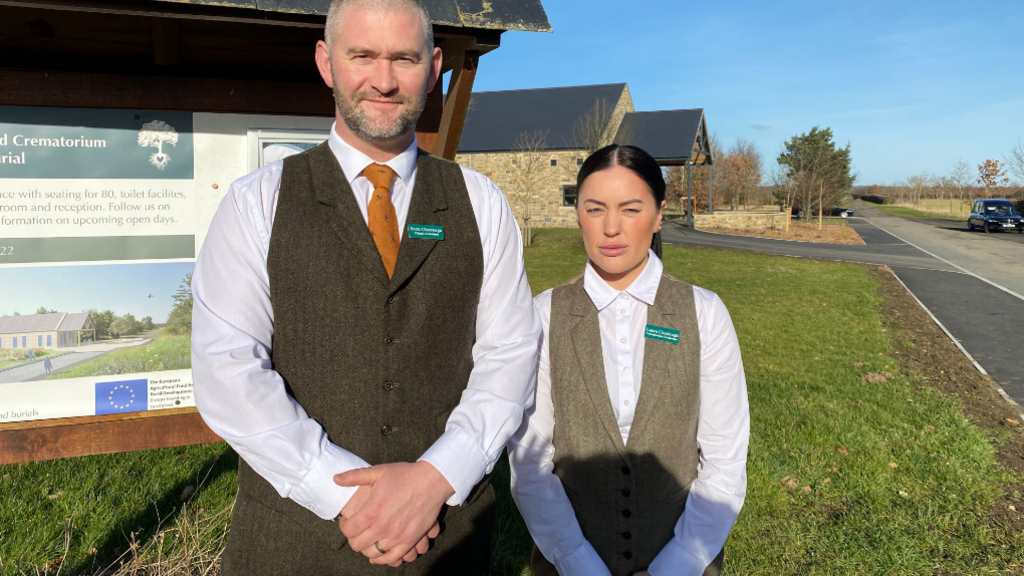
Scott and Laura Clarehugh, who run Northumberland Woodland Burials and Crematorium, wanted their site to reflect its history
“By having the Spitfire here, we can offer a memorial space for people to remember a loved one who served in any branch of the military," he added.
The unveiling ceremony at 16:00 BST included a commemorative parade in the presence of Wing Commanders of 19 and 20 Squadrons from RAF Boulmer, Northumberland.
Standard bearers from Northumbria, Gateshead and Newcastle branches of the Royal Air Forces Association also attended.
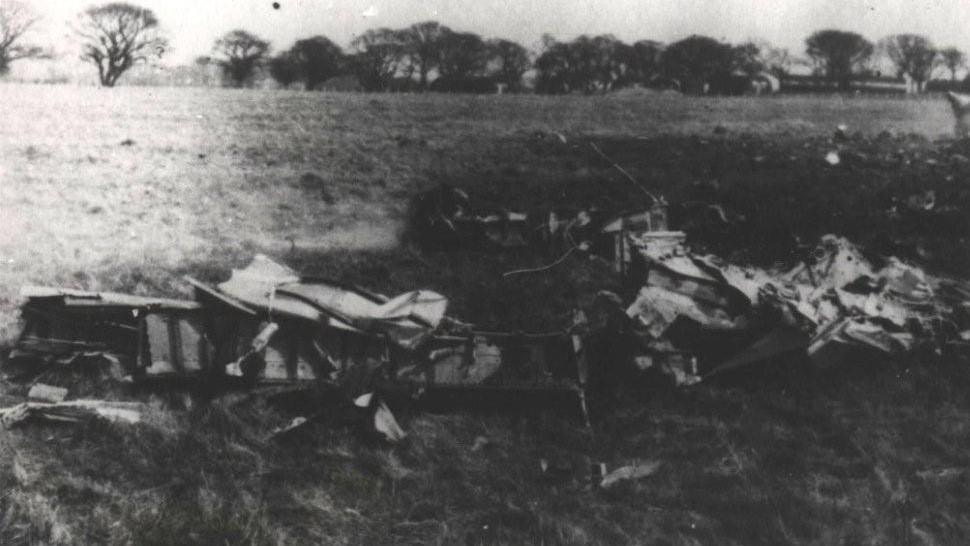
The wreckage of the crash, which claimed the lives of two pilots in 1944
Mr Davies, from Rothbury, who discovered the site of the crash, has written a book about aviation accidents in Northumberland.
He used contemporary maps and witness accounts to narrow down a possible location and, using a metal detector, found fragments of metal including the buckle from a parachute.
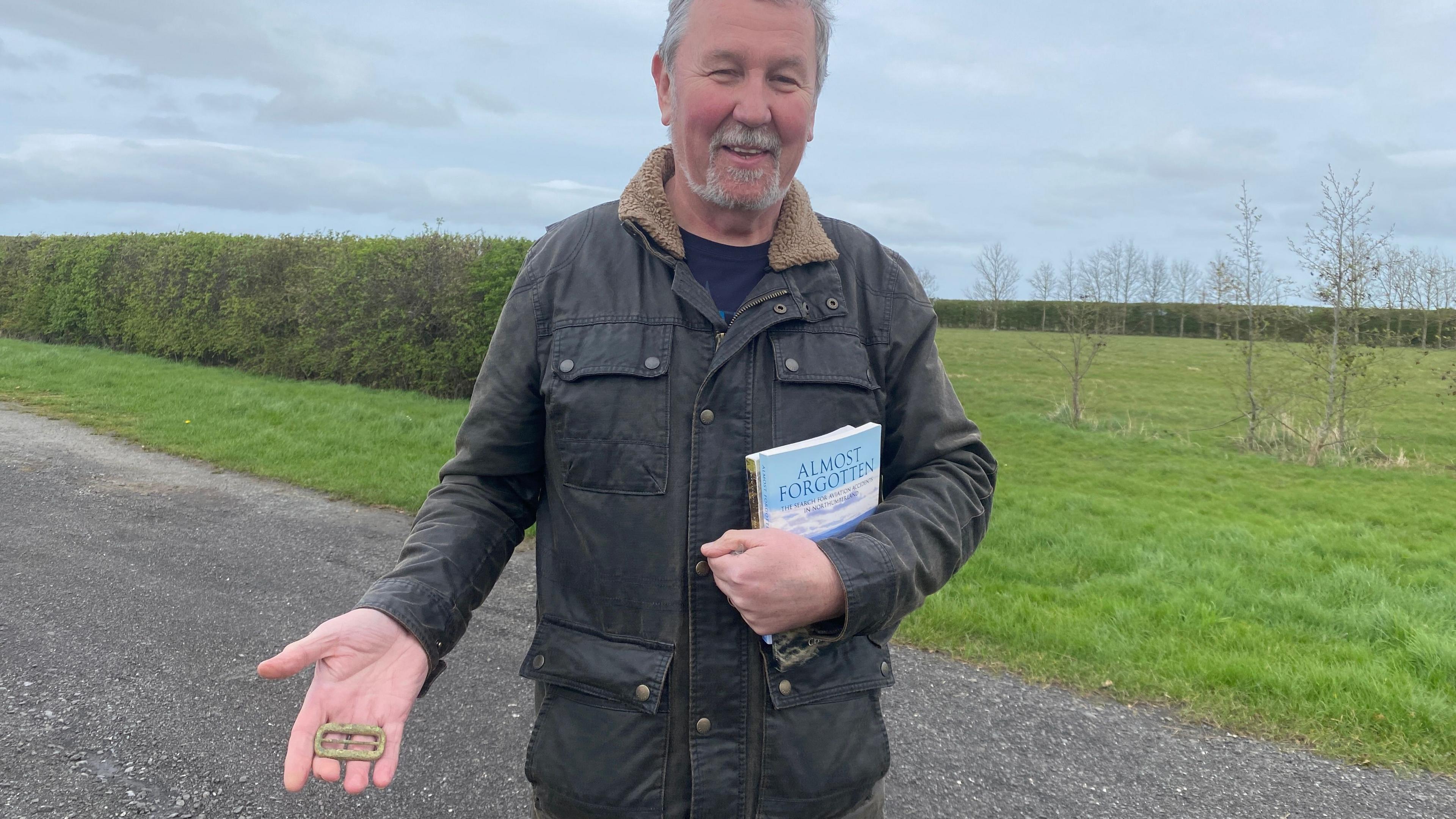
Chris Davies, an amateur researcher into aircraft crashes, also discovered a parachute buckle at the site
"Sadly training accidents were not unusual," he said.
"A lot of people say they gave their lives, I don't believe that, they didn't want to die.
"They were just 19 and were being put into these big powerful machines, it must have been terrifying."
Follow BBC North East on X (formerly Twitter), external, Facebook, external and Instagram, external. Send your story ideas to northeastandcumbria@bbc.co.uk.
- Published11 November 2021
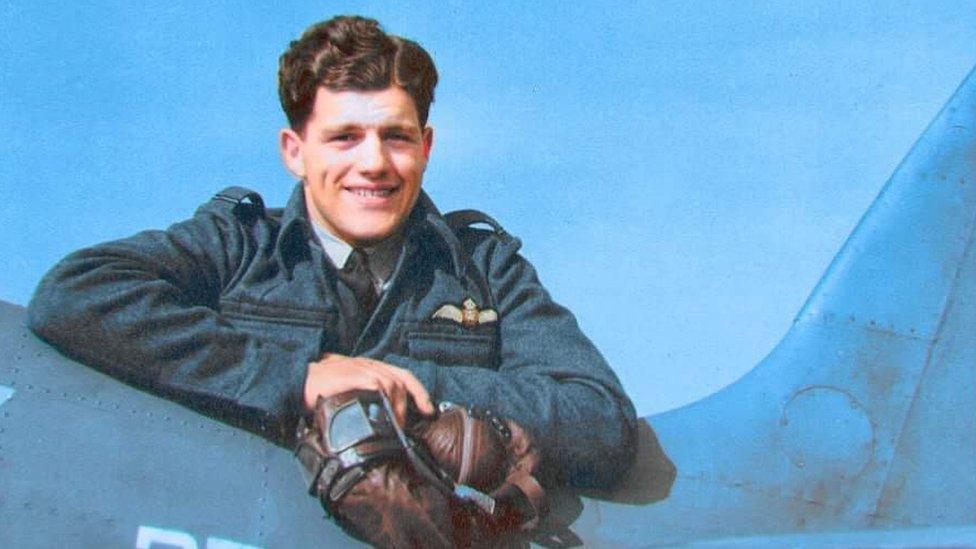
- Published17 March 2024
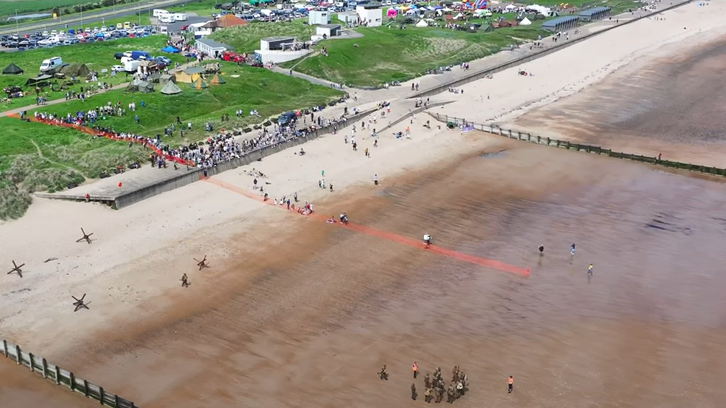
- Published9 December 2022
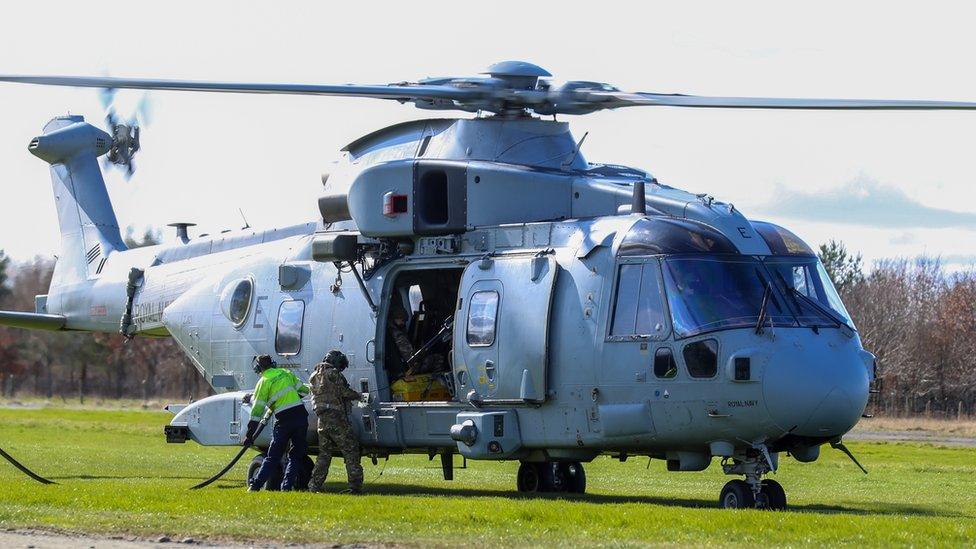
- Published17 October 2021
